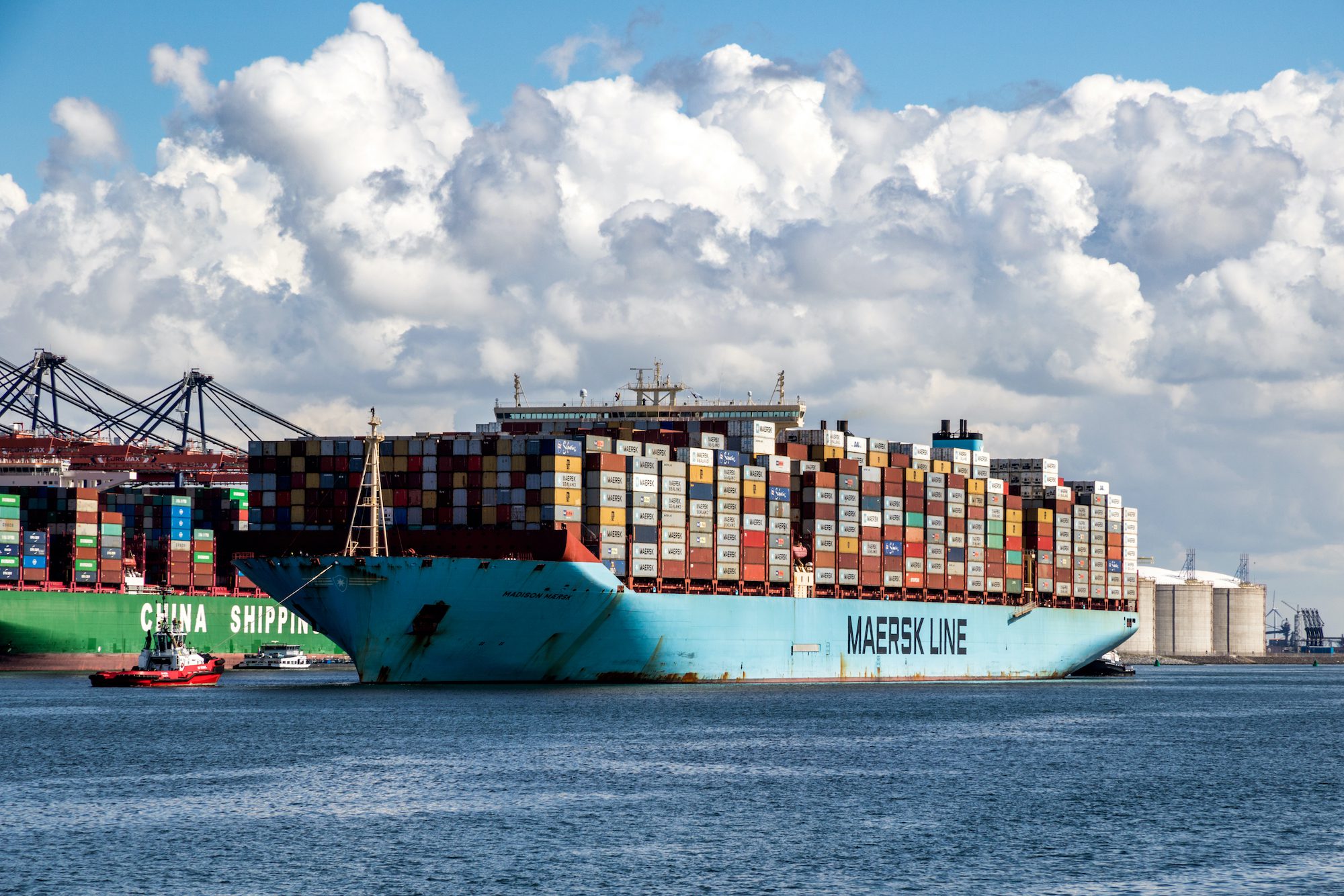Maersk Reports Record Results in 2022, But Dark Clouds on the Horizon are Getting Even Darker
Friday, 31 March 2023

Maersk remains steadfast on its in supply chain integration strategy as container shipping storm arrives.
A.P. Moller – Maersk (Maersk) is reporting an “exceptionally strong year” in 2022 driven by “abnormal market conditions” in the first part of the year before a swift return to normal in the fourth quarter and even darker clouds on the horizon for 2023.
“2022 was remarkable in more than one way,” said CEO Vincent Clerc, who took the helm at the beginning of the year. “While we report the best financial result in the history of the company, we have also taken the partnerships with our customers to a new level by supporting their supply chains end to end during highly disruptive times.”
MORE NEWS : Hapag-Lloyd CEO Sees Bounce in Shipping Demand as Short-Lived
High freight rates and strong demand contributed to the strongest yearly result on record for Maersk’s Ocean segment, particularly in the first half of the year. Ocean revenue came in 33% above 2021’s level thanks to a “stable level” of long-term contracts.
In Maersk’s Logistics & Services segment, revenue increased by 47% with an organic growth accounting for 21%. Maersk said its organic revenue growth came primarily from top 200 customers as the company continued to develop its integration strategy of providing end-to-end logistics.
Growth was particularly strong in warehousing where Maersk has more than doubled its footprint to 7.1 million sq m thanks to the acquisition of LF Logistics, which alone added 198 warehouses or 3.1 million sq m. Additional highlights in this area included the acquisitions of Pilot and Senator.
“Our commitment to provide visibility and truly integrated logistics solutions continue to resonate strongly with our customers for whom it is a strategic imperative to make their supply chains more resilient and sustainable,” said Clerc.
In Terminals, EBIT reached a record of USD 1.2 billion adjusted for the Russia exit. Maersk said its terminals segment was supported by solid volumes growth and high congestion related storage income. “Based on a combination of tariff increases and efficiencies the impact of high global inflation has been mitigated,” Maersk said.
Across all segments, Maersk’s revenue hit $81.5 billion in 2022, up from $61.7 billion in 2021. EBITDA came in at $36.8 billiion compared to $24 billion in 2021. EBIT hit $30.8 billion, up from $19.6 in 2021.
Capital expenditures (Capex) came in at $4.1 billion, compared to almost $3 billion in 2021.
In addition to Maersk’s integration strategy, the company is also pursuing a “first mover” strategy in terms of ESG as it seeks to decarbonize logistics across all transport modes. Maersk has set an ambition of achieving net zero emissions across its business by 2040, as well as an interim targets for 2030, in hopes of attracting like-minded customers. “70% of the top 200 customers have set carbon goals and supporting them in reaching these goals is core to Maersk’s ESG strategy,” Maersk said.
That’s the good news. Now it’s time for the bad.
In releasing its Q3 2022 results last November, Maersk warned of “dark clouds” on the horizon for container shipping. Well, it appears the storm has arrived and will continue to intensify through at least the first half of the year.
“As congestions eased and declining consumer demand led to a significant de-stocking in all segments, the expected normalization of the Ocean market kicked in during the final stretch of year,” Maersk said.
Maersk’s consolidated revenue in the fourth quarter came in a $17.8 billion, down from $18.5 billion in the fourth quarter of 2021. EBITDA fell to $6.5 billion from almost $8 billion a year earlier.
Maersk’s guidance for 2023 assumes that an “inventory correction will be complete by the end of the first half leading to a more balanced demand environment.” With global GDP growth expected to be muted in 2023, Maersk expects growth in the global market ocean container market to be in a range of -2.5% to +0.5%.
“Based on these assumptions, for the full year 2023, A.P. Moller-Maersk expects an underlying EBITDA of USD 8.0-11.0bn, an underlying EBIT of USD 2.0-5.0bn, and free cash flow (FCF) of at least USD 2.0bn,” Maersk said.
MORE NEWS : MSC Partners with Valencia to Expand Med’s Busiest Container Port
“As we enter a year with challenging macro-outlook and new types of uncertainties for our customers, we are determined to speed up our business transformation and increase our operational excellence to seize the unique opportunities in front of us,” Clerc said.
In relation to Maersk’s recent announcement that of its transition to a unified, singular “Maersk” brand, which will involve the retiring of its Hamburg Süd and Sealand brands, Maersk said it expects an impairment and restructuring charge of $450 million in Q1.
Source : https://gcaptain.com

01 September 2024
Container Prices Double, Leasing Rates Triple in China

04 September 2024
Maersk sets new bar with shipping’s first climate target validation

06 September 2024
Port of Los Angeles Reports Another Busy Month for Cargo Volumes

09 August 2024
